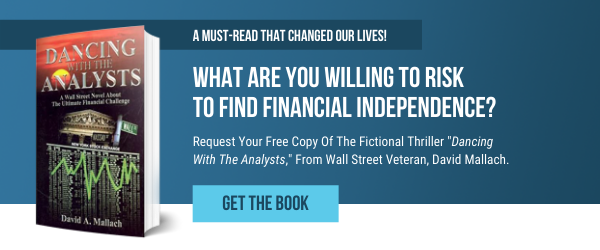In any industry, business ethics need to be a critical part of both the ethos and the contractual obligations they have both internally and externally. However, in the wealth management industry in particular, you have several thorny ethical issues that can affect both client-advisor relations as well as the fiduciary duty of the firm. We’re joined this week by Michael Kelly, an Equity Analyst and Financial Advisor here at Beck Bode, to talk about what clients (and advisors) need to know about business ethics in the wealth management industry before they get started.
The Elephant in the Room of “The Agency Problem”
Simply put, the agency problem is the conflict of interest that occurs when one party is expected to act in the best interests of another party. This happens in numerous professions, but in wealth management and financial planning, it hits particularly close to home. When it comes to one individual handing over their savings for proper investment, it’s important the agency receiving this duty is not only morally and ethically obligated, but also legally bound to use those investments in the best interests of the client.
Credentials and Fiduciary Duty
A fiduciary is a person who holds a legal and ethical relationship of trust with a party. In the world of wealth management, many advisors have credentials from institutes that provide training, credentials, and enforcement as a part of their “fiduciary duty.” Examples of the most common credentials include:
- Certified Financial Planner (CFP)
- Certified Public Accountant (CPA)
- Chartered Financial Analyst (CFA)
- Chartered Institute of Management Accountants (CIMA)
For example, the Code of Ethics and Standards of Conduct for CFPs can be seen here and is an excellent example of what to look for in an advisor.
Why You Need to Know How Your Financial Advisor is Paid
Fiduciary duty and an understanding of the inherent conflict of interest aren’t the only things that make a good financial advisor or planner. Individuals will work better on your behalf with a clear conscious and no incentives to work against your best interest. That’s why understanding the fee system of the firm is so important.
Commissioned vs. Fee-Only Agencies
Here at Beck Bode, we use a Fee-Only Model for our financial planning for two very important reasons. First, it allows our customers to know the costs ahead of time. And secondly, it provides transparent compensation methods for our staff, meaning there’s no stress – and fewer “agency problem” issues – that come from direct or indirect sales-related compensation or commission.
Understanding Client Risk Tolerance with Investments
Beyond payments and money, part of a good financial advisor’s duty is talking with the client about risk. More specifically, the “risk tolerance” of the clients. These are two primary factors:
- The willingness of the client to take on risk.
- The ability for the client to take on risk.
It’s important that these discussions both happen and are taken into consideration for the client before investment starts. It isn’t simply about getting the best returns, but that the client both understands and accepts the risk, and that they are in a place where they can safely make these investments. It’s up to the advisor to do much of the legwork here, not only in what the client says, but also how they react, feel, and look at the other factors in play, such as the source of wealth, client occupation, dependents, etc.
Here at Beck Bode, we believe that success requires continuous collaboration and communication with clients and that a culture deeply instilled with trust and ethics fosters enduring relationships that can be rewarding on many fronts – for both our clients and our advisors. Want to learn more? Reach out to us at Beck Bode, LLC with any questions you have, and we’ll find one of our many advisors that is a perfect fit for your needs.

